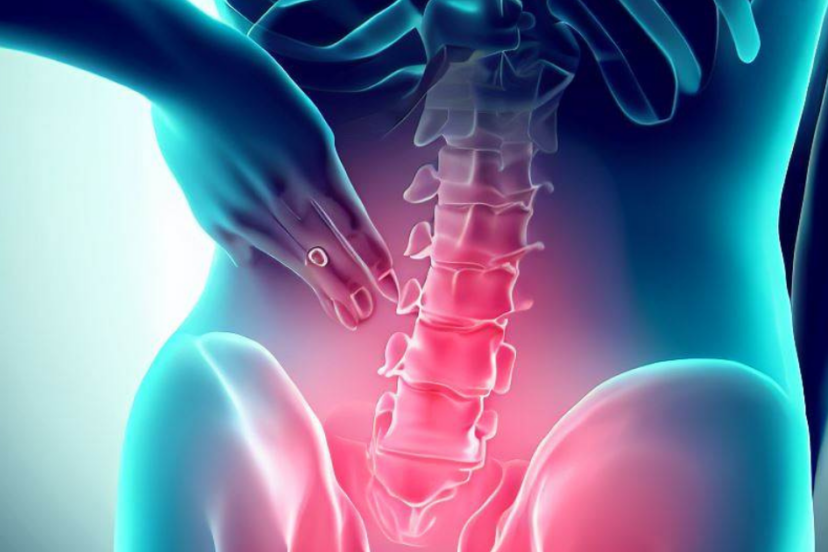Can Constipation Cause Back Pain?
As someone who has personally dealt with back pain and sought various remedies, I understand the frustration and discomfort it can bring. While back pain is often associated with muscle strains related to poor posture sports, gym injuries while performing
deadlifts, or
squats, there is another surprising culprit that may contribute to this condition – constipation. In this article, I will delve into the connection between constipation and back pain, providing helpful suggestions and reasons to address the issue promptly.
Back pain is a common ailment that affects individuals of all ages and lifestyles. In my own journey with back pain, I discovered that identifying the root cause is crucial for effective relief. Understanding the link between constipation and back pain is a vital step in finding a suitable solution.
Understanding Constipation
Before exploring the connection between constipation and back pain, let’s define constipation itself. Constipation is a condition characterized by infrequent bowel movements, difficulty passing stool, or hard and dry stool consistency. It can occur due to a variety of factors, including inadequate fiber intake, insufficient water consumption, lack of physical activity, or certain medications.
When constipation occurs, the stool remains in the colon for an extended period, leading to the absorption of excess water. Consequently, the stool becomes harder and more challenging to pass, causing discomfort and straining during bowel movements.
Link between Constipation and Back Pain
While it may seem surprising, there is a logical explanation for how
constipation is associated with back pain. When constipated, the accumulated stool exerts pressure on the lower back, specifically the sacrum and coccyx regions. This added pressure can irritate the surrounding nerves, leading to pain and discomfort.
Moreover, the nerves in the lower back region are interconnected, and irritation in one area can radiate pain to adjacent regions. This phenomenon, known as referred pain, can make it difficult to pinpoint the exact source of the discomfort, often leading individuals to overlook constipation as a potential cause.
Prevention and Relief
Preventing constipation is essential for maintaining overall well-being and reducing the risk of back pain. Adopting a healthy lifestyle and incorporating specific habits can help alleviate the problem. Here are some suggestions:
Three Tips : Maintaining a healthy diet and lifestyle:
Consuming a balanced diet rich in fiber, exercise, and avoiding processed foods can promote regular bowel movements and prevent constipation. Additionally, maintaining a healthy weight and avoiding sedentary habits can contribute to better digestive health.
1. Adequate hydration and fiber intake:
Drinking enough water throughout the day is crucial for maintaining hydration and supporting proper digestion. Including fiber-rich foods such as fruits, vegetables, whole grains, and legumes can add bulk to the stool and facilitate smoother bowel movements.
2. Regular exercise and physical activity:
Engaging in regular physical activity helps stimulate the muscles in the digestive system, promoting bowel regularity. Incorporating activities like walking, jogging, yoga, or cycling into your routine can have a positive impact on both constipation and back pain.
3. Proper posture and body mechanics:
Maintaining good posture while sitting or standing can reduce strain on the lower back and contribute to a healthy spine. Additionally, using proper body mechanics when lifting heavy objects can prevent injuries and potential constipation-triggered back pain.
Three Natural Remedies for Constipation
If constipation persists or becomes a recurring issue, there are several natural remedies that can provide relief:
1. Increasing fiber-rich foods in the diet:
Consuming more fruits, vegetables, whole grains, and legumes can enhance the fiber content of your diet, promoting regular bowel movements. Foods like prunes, flaxseeds, and chia seeds are particularly known for their beneficial effects on digestion.
2. Using over-the-counter laxatives with caution:
Over-the-counter laxatives can provide short-term relief from constipation, but they should be used sparingly and as directed. Prolonged or excessive use of laxatives can disrupt the natural bowel function and lead to dependency.
3. Beneficial herbs and supplements for digestion:
Certain herbs and supplements have shown potential in alleviating constipation. Examples include aloe vera, ginger, peppermint oil, and probiotics. However, it’s important to consult with a healthcare professional before incorporating any new supplements into your routine.
When to Seek Medical Help
While most cases of constipation-related back pain can be managed with lifestyle changes and natural remedies, there are instances where medical assistance is necessary. It’s crucial to seek professional help in the following situations:
Chronic or severe constipation:
If constipation persists for an extended period, accompanied by severe pain or other concerning symptoms, it’s important to consult a healthcare provider. They can assess your condition, identify any underlying causes, and recommend appropriate treatment.
Symptoms of underlying health issues:
Constipation can sometimes be a symptom of an underlying medical condition such as irritable bowel syndrome (IBS), inflammatory bowel disease (IBD), or hypothyroidism. If you experience persistent constipation along with other unusual symptoms, a thorough evaluation by a healthcare professional is advised.
Managing Back Pain
While addressing constipation is essential for managing constipation-induced back pain, there are also strategies to alleviate the discomfort directly:
1. Applying heat or cold therapy:
Applying a heat pack or a cold compress to the affected area can help reduce inflammation and alleviate muscle tension, providing temporary relief from back pain.
2. Gentle stretching and exercises:
Engaging in gentle stretching exercises can help loosen tight muscles and improve flexibility. Strengthening exercises that focus on the core muscles can also provide support to the back and alleviate pain.
3. Over-the-counter pain relievers:
Non-prescription pain relievers can help manage mild to moderate back pain. However, it’s important to follow the recommended dosage and consult a healthcare professional if the pain persists or worsens.
4. Seeking professional treatment if necessary:
If the back pain caused by constipation becomes unbearable, significantly affects your daily life, or persists despite home remedies, it’s essential to seek professional treatment. A healthcare provider, such as a physician or a physical therapist, can assess your condition, provide a tailored treatment plan, and recommend appropriate interventions, including medication or physical therapy.
Closing remarks
In conclusion, constipation can indeed cause back pain, and addressing the underlying constipation issue is crucial for finding relief. By adopting a healthy lifestyle, incorporating natural remedies, and seeking medical assistance when necessary, you can effectively manage constipation-induced back pain and improve your overall well-being.
FAQs
1. Can constipation cause lower back pain?
Yes, constipation can cause lower back pain due to the increased pressure on the lower back and irritation of the surrounding nerves.
2. How long does constipation-related back pain last?
The duration of constipation-related back pain can vary depending on the individual and the severity of the constipation. With appropriate remedies and lifestyle changes, the pain usually subsides within a few days.
3. Are there any specific yoga poses that can help relieve back pain from constipation?
Certain yoga poses, such as Cat-Cow, Child’s Pose, and Supine Twist, can help relieve back pain associated with constipation. It’s important to consult with a qualified yoga instructor to ensure proper technique and alignment.
4. Can back pain be the only symptom of constipation?
While back pain can be a symptom of constipation, it is often accompanied by other symptoms such as abdominal discomfort, bloating, and difficulty passing stool.
5. Is surgery ever required to treat back pain caused by constipation?
Surgery is rarely necessary to treat back pain caused by constipation. Most cases can be effectively managed through lifestyle changes, natural remedies, and medical interventions if required. Surgery is typically reserved for severe cases with underlying structural issues in the spine.
Remember, if you experience persistent or severe back pain or have concerns about your health, it’s important to consult a healthcare professional for proper evaluation and guidance.
*We may earn a commission from purchases made through our links, at no cost to you. This does not affect our product recommendations. Please see our disclosure to learn more.
![Urban Health Hive]](https://urbanhealthhive.com/wp-content/uploads/2023/05/cropped-cropped-Health_Logo.png)



